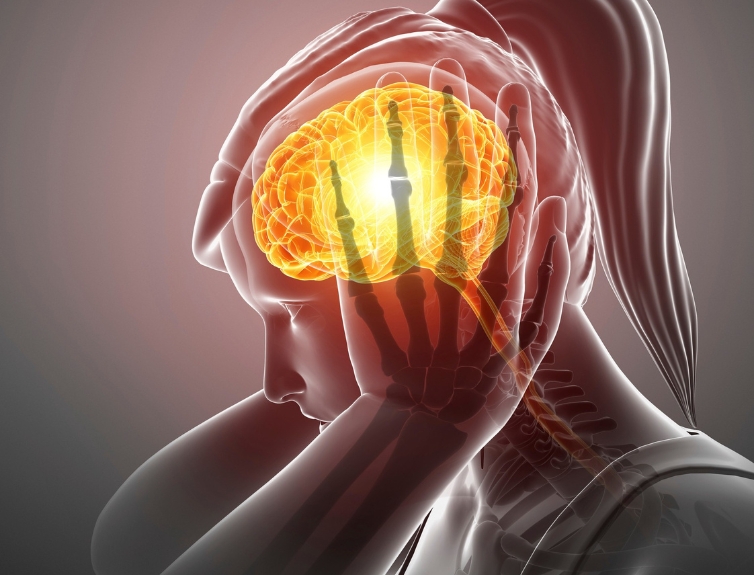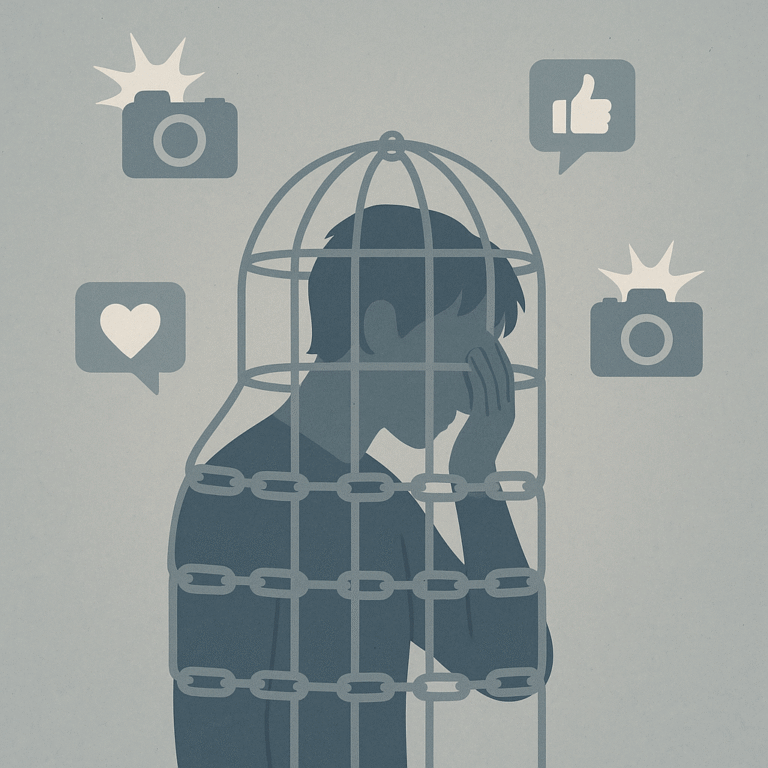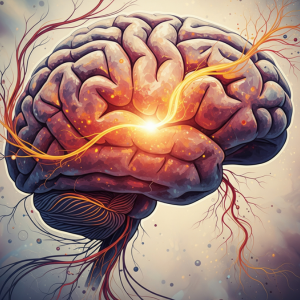
Stress Shows Up in the Body—But It Starts in the Mind: Understanding the Psychosomatic Connection
Introduction: How Thoughts Shape Your Health
Have you ever felt a headache coming on after a particularly stressful day at work? Or maybe you’ve experienced some digestive discomfort after a tough conversation? If so, you’ve probably noticed that stress isn’t just something that messes with your mind—it can have a serious effect on your body too.
As a coach and wellness guide, I’ve seen this connection firsthand. The mind-body link is real, and the way we think can directly affect how we feel physically.
This post is here to help you understand how stress and emotions, if left unchecked, don’t just linger in your mind—they start showing up in your body as something much more tangible. These physical symptoms are called psychosomatic symptoms, and I’ll explain how they happen, what they look like, and what you can do about them. Stick with me—you might just discover a whole new way of looking at your health.
What’s Psychosomatic Stress, Anyway?
Let’s break this down. The word psychosomatic comes from two Greek words: psyche (mind) and soma (body). So, psychosomatic stress is all about how your thoughts and emotions influence your physical health. It’s not just your body reacting to things outside—it’s your body responding to what’s going on inside your head.
Here’s the thing: you’ve probably heard the phrase, “What you think, you feel,” and that’s no cliché. It’s true.

Take a second and think about this scenario. You’re a busy professional juggling tight deadlines, late-night meetings, and family obligations. At some point, the pressure starts getting to you, and you feel mentally drained. But have you noticed how this mental exhaustion can turn into physical symptoms, like a stiff neck, tension headaches, or even an upset stomach? It’s not just bad luck—your body is talking to you.
When stress isn’t dealt with, it doesn’t just vanish. It becomes something physical. Your body literally speaks through discomfort. So remember, when your body feels tense or aches, it’s usually your mind’s way of showing up.
Book a Session, Start Healing Sooner
The Science: Why Stress Affects Our Bodies
Stress is more than just something psychological. It has an actual biological path that runs through our body. Here’s a peek at how it works:

The Nervous System:
When we face stress, our brain kicks into high gear, activating the autonomic nervous system (which controls things like heart rate and digestion). This is what’s behind the “fight or flight” response. Suddenly, you feel your heart race, your breathing gets quicker, and your body releases cortisol (the stress hormone).

Chronic Stress Effects:
While a little bit of cortisol is fine, prolonged stress keeps it circulating in your body. This can lead to inflammation, muscle tension, and other unpleasant symptoms like digestive issues or headaches.

Your Brain’s Plasticity:
Did you know your brain can literally retrain itself? The longer you experience stress, the easier it becomes to feel anxious or tense. And over time, this leads to physical symptoms because your brain has essentially “reprogrammed” how it responds to stress.
Stress Shows Up in the Body: What to Look For
Your body doesn’t just suffer in silence when you’re stressed. It can show up in a variety of ways, and if you’ve ever felt these symptoms, you know what I’m talking about:
- Headaches: Tension headaches are common for people under stress, especially around the neck and shoulders.
- Digestive Issues: Stress impacts your gut—think bloating, constipation, or even acid reflux. Your gut’s actually connected to your brain, which is why stress often shows up in this area.
- Fatigue: Feeling wiped out all the time? Overthinking and emotional stress can drain your energy reserves and leave you feeling exhausted.
- Muscle Tension: Stress tightens up your muscles, especially in areas like your back and neck. Over time, this can lead to chronic pain.
- Trouble Sleeping: If your mind’s racing with worries or anxiety, it’s hard to get good rest, right? That poor sleep can also worsen stress.
A Personal Example
I once worked with a client, Ananya, who came to me with persistent neck pain. She’d tried everything, but nothing worked. As we dug into her lifestyle, I realized her pain was directly tied to the stress she was carrying from work. Her body was holding onto that tension, and with some simple techniques—like mindfulness and stress relief practices—she was able to significantly reduce her neck pain.
Breaking the Cycle: How to Manage Stress and Heal Your Body
Now that we know stress impacts the body, how do we get out of this loop? Here are some simple yet effective ways to manage your stress and give your body the relief it needs:
Step 1: Own Your Emotions
We tend to ignore or bottle up our emotions, but that only creates more tension in our bodies. The first step to releasing stress is recognizing and accepting how you feel—without judgment. Whether it’s frustration, fear, or anger, acknowledging these feelings can help you let go of the weight they bring.
Step 2: Practice Relaxation Techniques
Mindfulness is one of the best tools for calming your mind and relieving physical tension. A few minutes of deep breathing, meditation, or gentle stretches can significantly lower cortisol levels and ease muscle tension.
Step 3: Change Your Thought Patterns
The way you perceive situations can make a huge difference in how you feel. If you’re constantly reacting to stress in the same way, try switching things up. Techniques like Cognitive Behavioral Therapy (CBT) or Neuro-Linguistic Programming (NLP) can help you reframe situations and break the cycle of stress, which will lead to physical improvements as well.
Step 4: Move Your Body, Nourish It Right
Eating well and staying active are essential. Regular exercise releases endorphins, which naturally reduce stress, and helps your body recover from physical tension. Yoga, walking, or even dancing are great stress busters.
Step 5: Get Support When You Need It
Sometimes, we need a little extra help. Whether it’s therapy, a support group, or a holistic health coach, finding guidance and support can make a huge difference in your healing process.
Need Physiotherapy Help? Reach Out to Us

Real Transformations, Real Results

Ready to Take Control of Your Health?
Here’s the good news: you don’t have to live with chronic stress or its physical symptoms forever. Your body is incredibly resilient, and by addressing the root causes of stress, you can start to feel better.
At Ashish Nagar NLP, we help people like you reconnect with their emotions, manage stress, and take charge of their physical health. If you’re ready to make a change, let’s talk. Whether it’s through NLP, mindfulness, or one-on-one coaching, we’re here to support you.
Start today—change your mindset, and your body will follow.









